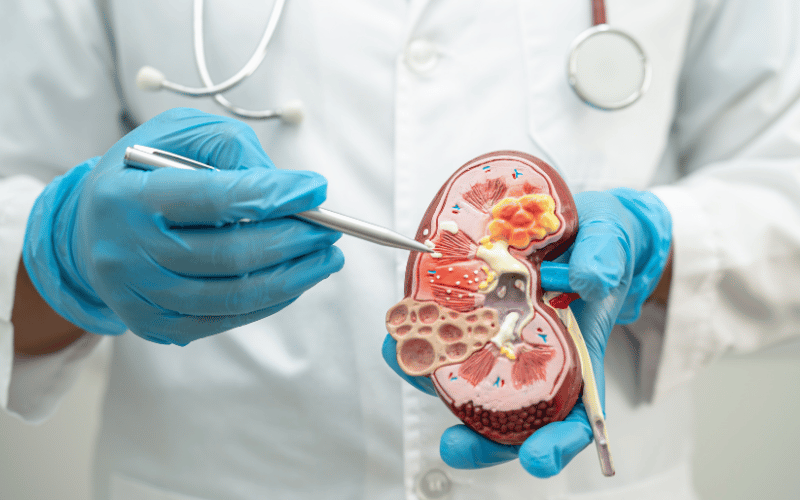Cause 3: Chronic Kidney Disease
Your kidneys are like the body’s natural purification system. They tirelessly filter your blood, removing waste products and excess fluid while keeping a tight lid on essential electrolytes. But when this vital organ starts faltering, as in the case of chronic kidney disease (CKD), things can quickly go awry, including your potassium balance.
CKD is characterized by a slow, progressive loss of kidney function over time. This decline impacts the kidneys’ ability to balance electrolytes, including potassium. While in the early stages of CKD, high potassium levels might be a concern, advanced stages can swing the other way, leading to Hypokalemia.
The reason for this lies in the complex mechanisms of kidney function. As kidney disease progresses, the organ’s ability to concentrate urine diminishes. This, coupled with increased water intake (a common recommendation for CKD patients), could lead to excessive urination. Consequently, increased potassium excretion may ensue, resulting in Hypokalemia.(*)
